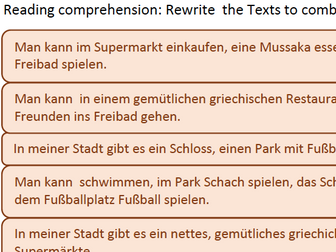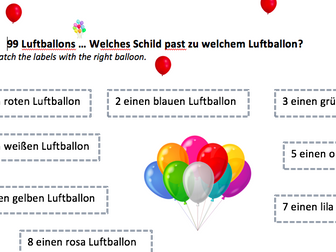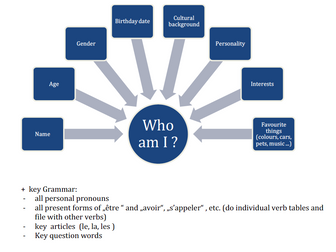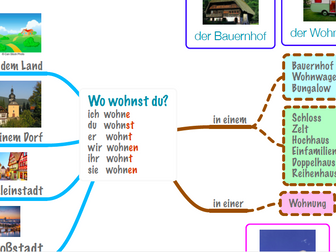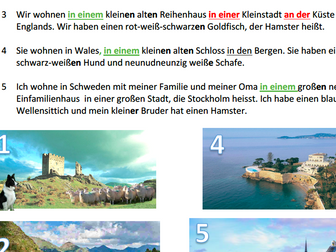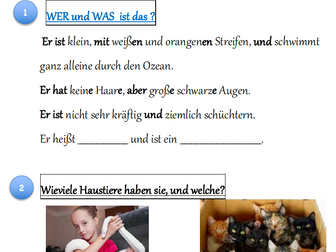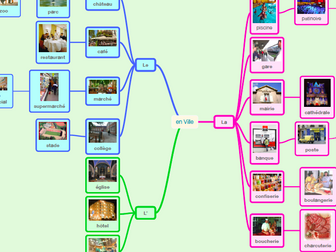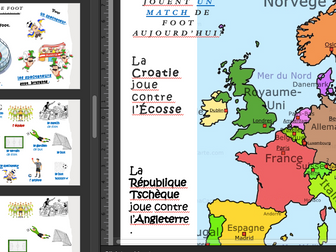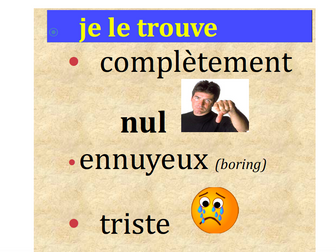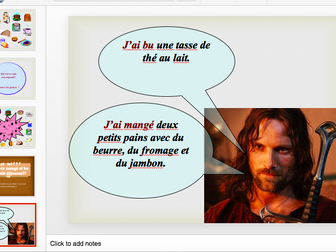Mon petit château médiéval au Pays de Galles
<p>A set of READING comprehension tasks, based on 2 texts:<br />
The first describes where the writer lives<br />
The second describes one of the rooms in detail.</p>
<p>The vocabulary is a bit more sophisticated, but the tasks are kept fairly simple to help make the text reasonably accessible.</p>
<p>It is aimed at pupils of medium to high ability, studying FRENCH for GCSE or IGCSE.</p>
<p>As a follow-up activity, pupils could be asked to write a description of one of the other rooms in that period building.</p>
<p>Or they could be invited to identify where to include more tenses / details…</p>
